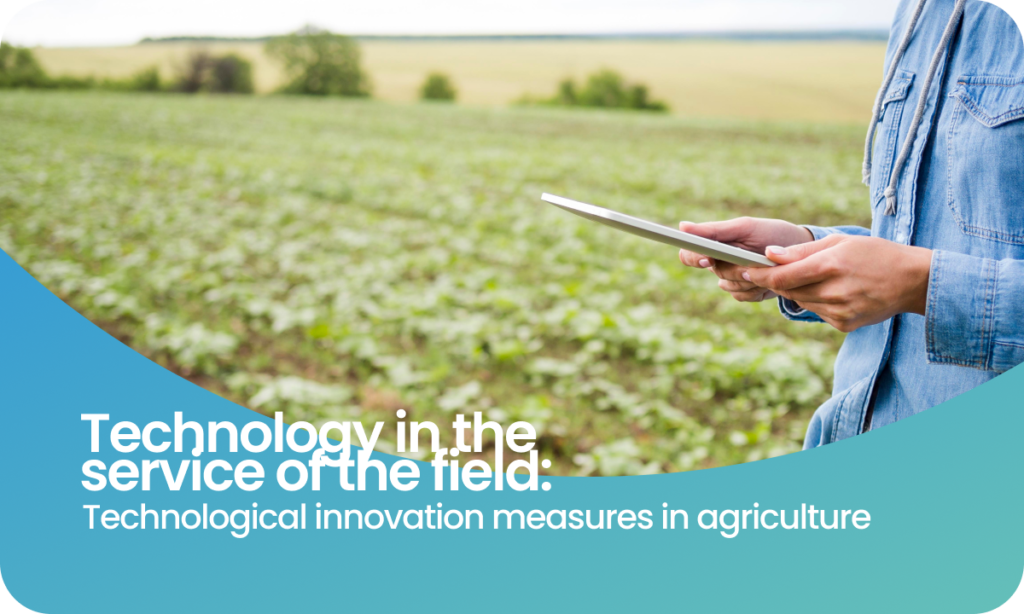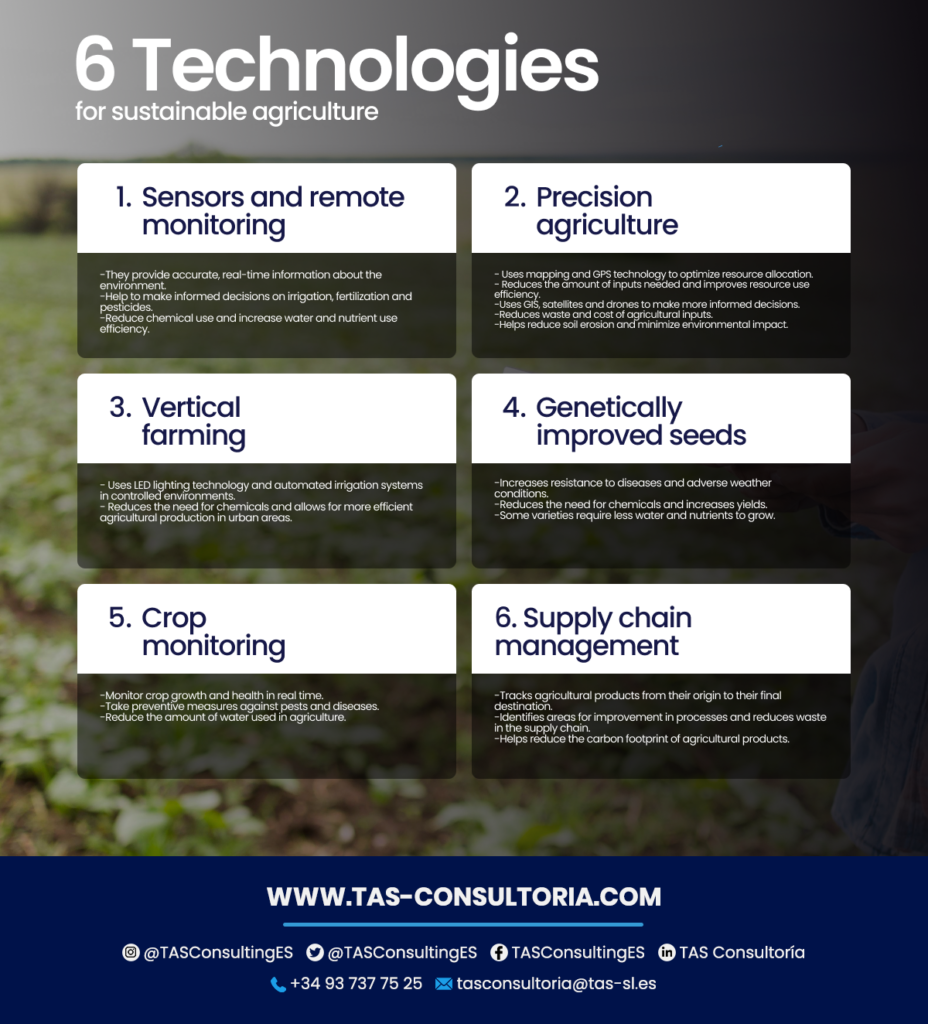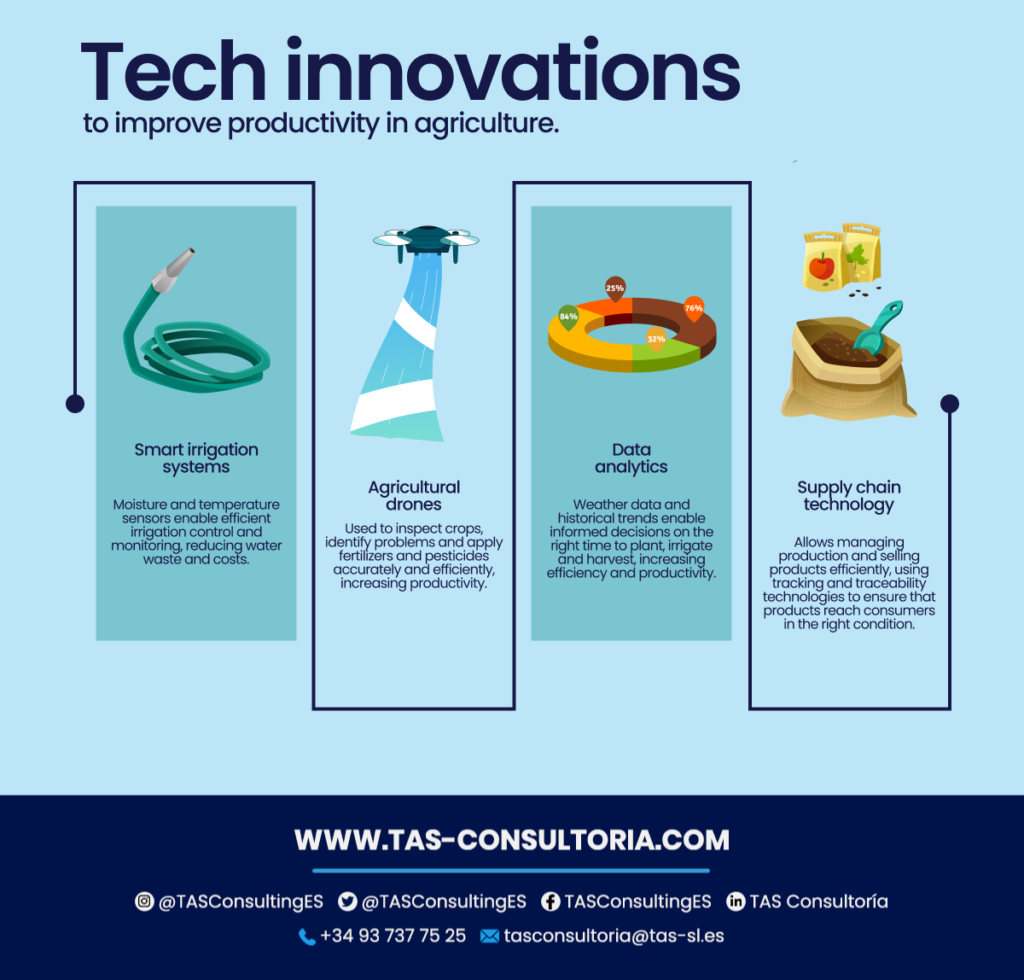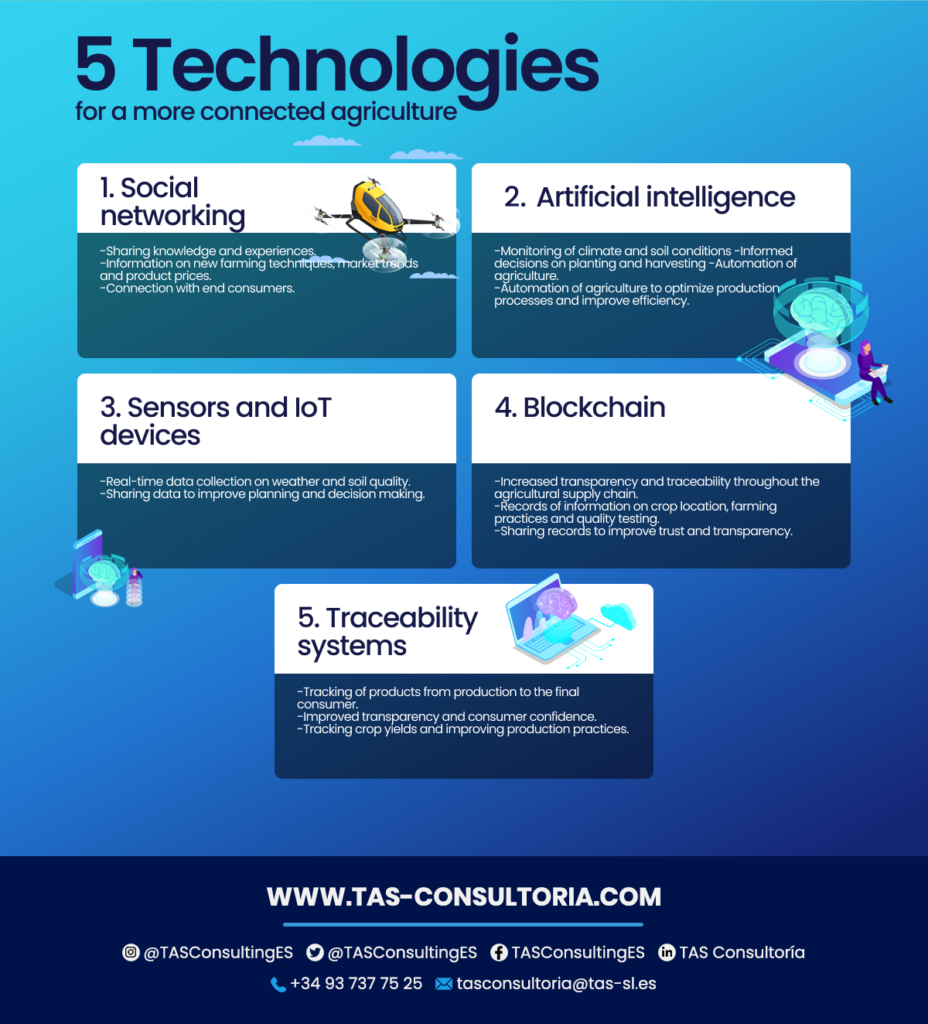
Technological innovation in agriculture has become a necessity to achieve more sustainable and efficient production. In this sense, smart cities are leading the way in implementing innovative measures to improve agricultural production. Read on to discover how these technologies can benefit your agricultural business!
Technologies for a more sustainable agriculture
The use of advanced technologies in the fields and for farmers can be the key to achieving sustainable and efficient agricultural production. The use of tools can help farmers reduce pesticide use and improve resource management efficiency. All while increasing yields and improving product quality.
In relation to technological innovation in agriculture, the Ministry of Agriculture will receive 1 billion euros of the 140 billion euros earmarked by Europe for the post-pandemic recovery plan.
Of this amount, more than half will be allocated to irrigation modernization through the implementation of the latest technologies in infrastructure, renewable energy, and data management.
With these technological innovations, such as big data, artificial intelligence, remote control and telemetry, Spain is positioned as one of the leaders in modern irrigation systems worldwide. This investment in agriculture 2022 is an excellent opportunity to boost technology in the agricultural sector, which will significantly improve efficiency in the use of water and energy.
That said, here are some of the most promising measures of technological innovation in agriculture for sustainability:

Sensors and remote monitoring
Sensors can provide accurate, real-time information on soil moisture, temperature, air quality and other important environmental factors.
This measure of technological innovation in agriculture can help farmers make informed decisions about when to irrigate, fertilize or apply pesticides, which can reduce the use of these chemicals and increase water and nutrient use efficiency.
Precision agriculture
Technological innovation in precision agriculture uses mapping and GPS tools to optimize the distribution of seeds, fertilizers and pesticides in the field. This can help reduce the amount of inputs needed and improve resource use efficiency.
In addition, precision farming can also help reduce soil erosion, as farmers can avoid farming in areas with steep slopes or in areas that are more prone to erosion.
By taking preventative measures, farmers can minimize their environmental impact and reduce the amount of nutrients and pesticides leaching into groundwater.
Vertical farming
Technological innovation in vertical farming is based on the implementation of LED lighting and automated irrigation systems to grow plants in controlled indoor environments. This practice can reduce the use of pesticides and fertilizers, thus promoting more efficient and sustainable agricultural production in urban areas.
Genetically improved seeds
Technological innovation in agriculture includes genetically improved seeds. They can increase resistance to disease and adverse weather conditions, reducing the need for pesticides and increasing yields. In addition, some genetically improved crop varieties may require less water and nutrients to grow.
Crop monitoring
Crop monitoring is a technological innovation in agriculture that is helping workers become more environmentally conscious. By using sensors and cameras, farmers can monitor the growth and health of their crops in real time. This allows them to take preventative measures against pests and diseases before they become a major problem.
Crop monitoring can also help reduce the amount of water used in agriculture. By monitoring soil moisture in real time, farmers can adjust the amount of water they use to irrigate their crops. This can reduce water waste and ensure that crops receive the right amount of water they need to grow.
Supply chain management
Supply chain management is part of technological innovation in agriculture. By using tracking and tracing systems, farmers can trace agricultural products from their origin to their final destination. This allows them to identify areas for improvement in their processes and reduce waste in the supply chain.
In addition, supply chain management can also help reduce the carbon footprint of agricultural products.
By identifying areas where greenhouse gas emissions can be reduced, farmers can take steps to reduce their environmental impact. This may include using more efficient vehicles to transport agricultural products or adopting more sustainable farming practices.
You may also be interested in: Impact of health tech today
Technological innovation in agriculture to improve productivity
Technology can be a valuable tool for farmers looking to increase the productivity and efficiency of their crops, improve their business and ensure sustainable and profitable production. What technological innovation tools in agriculture have been developed? We share some of them with you:

The combination of drones, sensors, smart irrigation systems and other technologies are enabling farmers to monitor and control their crops more effectively.
Drones can collect data on crop health and the distribution of water and fertilizer in the field. Sensors can detect soil moisture, temperature and air quality, while smart irrigation systems can automatically adjust irrigation to ensure each plant receives the right amount of water, etc.
With these measures of technological innovation in agriculture you can identify and solve problems quickly, increasing the efficiency of your operations and improving the quality of your crops.
You may also be interested in: Financial data protection: How are customers protected?
Technologies for a more connected agriculture
With the constant advancement of technology, growers are finding new ways to connect with other professionals in the field, the industry and end consumers. Here’s how technologies are enabling workers to become more connected and improve collaboration and transparency throughout the supply chain.

You may also be interested in: Business cluster: what is it and how does it work?
Technological innovation in agriculture is leading to a revolution in the way food is produced and distributed. Smart cities and their innovative measures are improving the efficiency and sustainability of agricultural production, resulting in higher product quality and reduced environmental impact.
Therefore, we invite you to subscribe to our library so that you can keep up to date with the most important technological and business news in Spain and the world. Don’t miss the opportunity to be part of the technological revolution in agriculture and other business sectors!




Your email address will not be published .
Required fields are marked with *